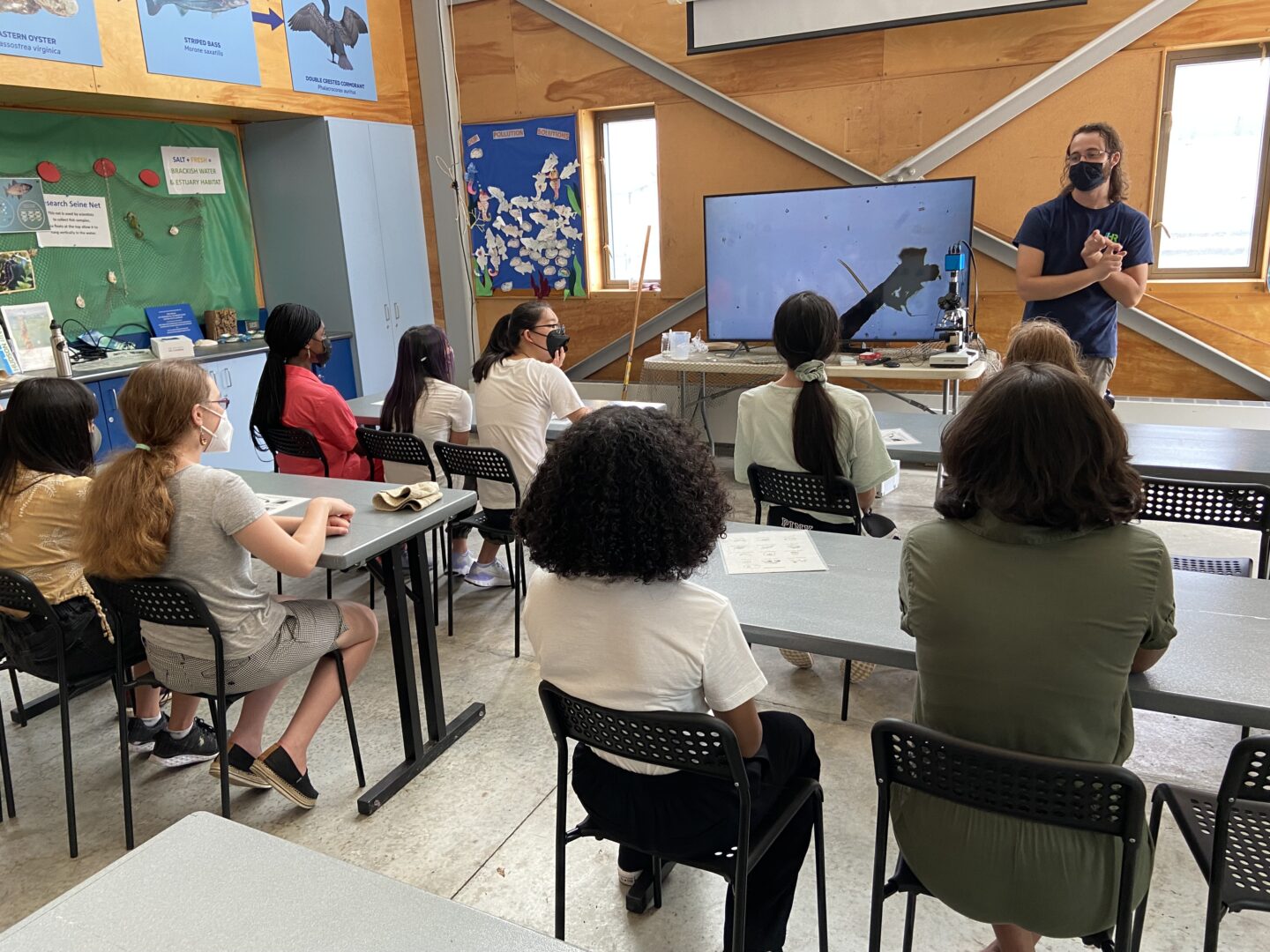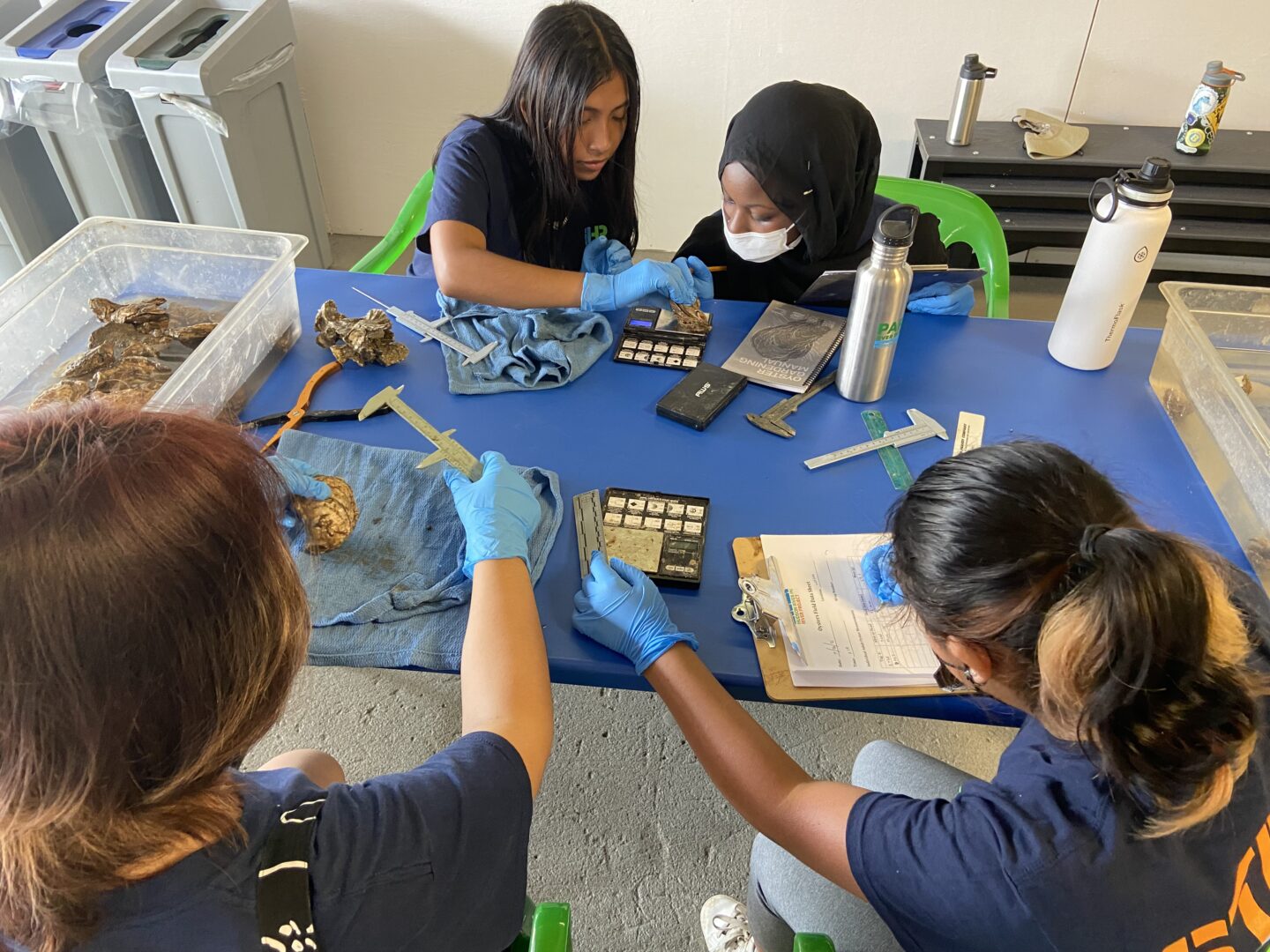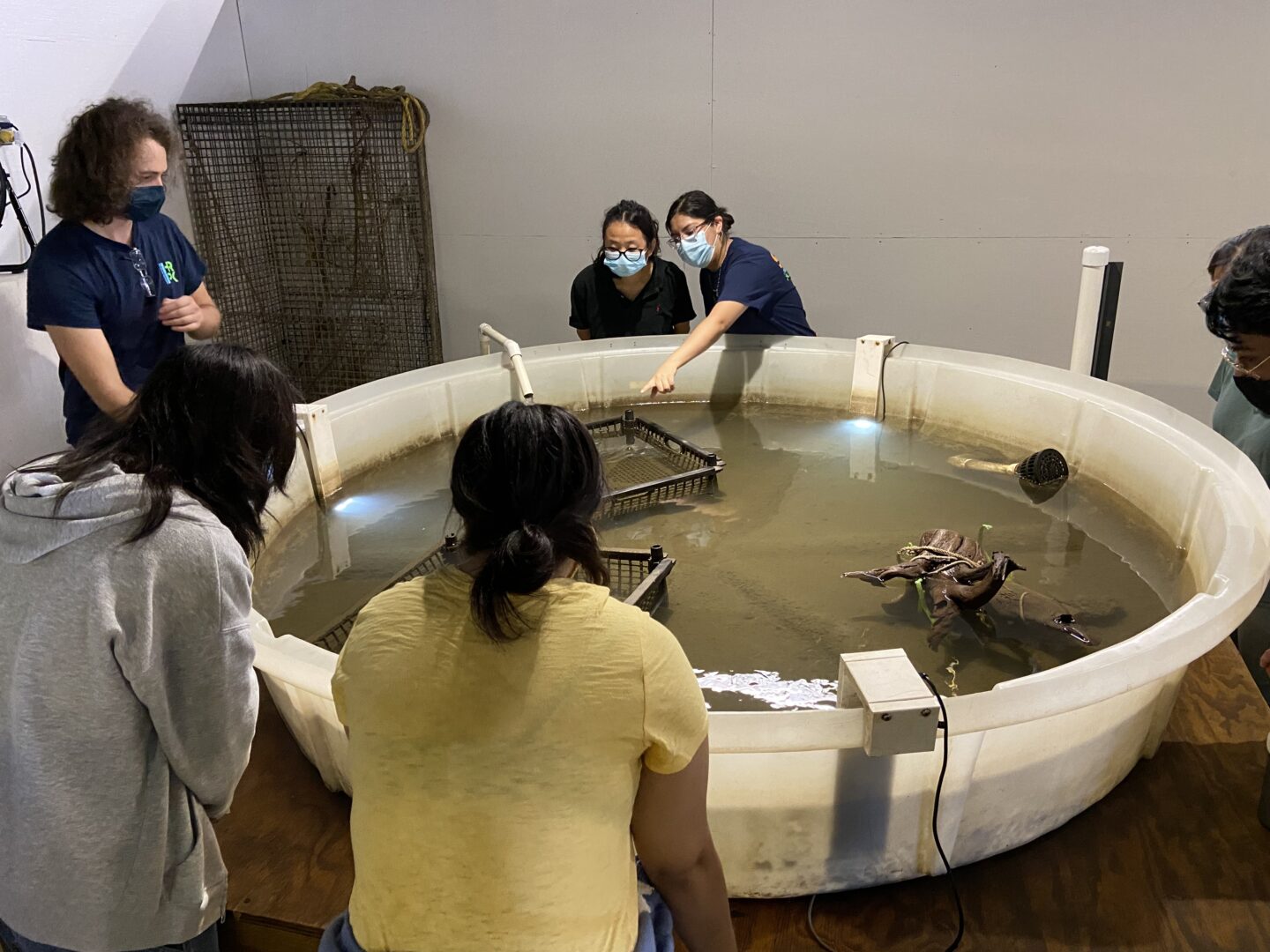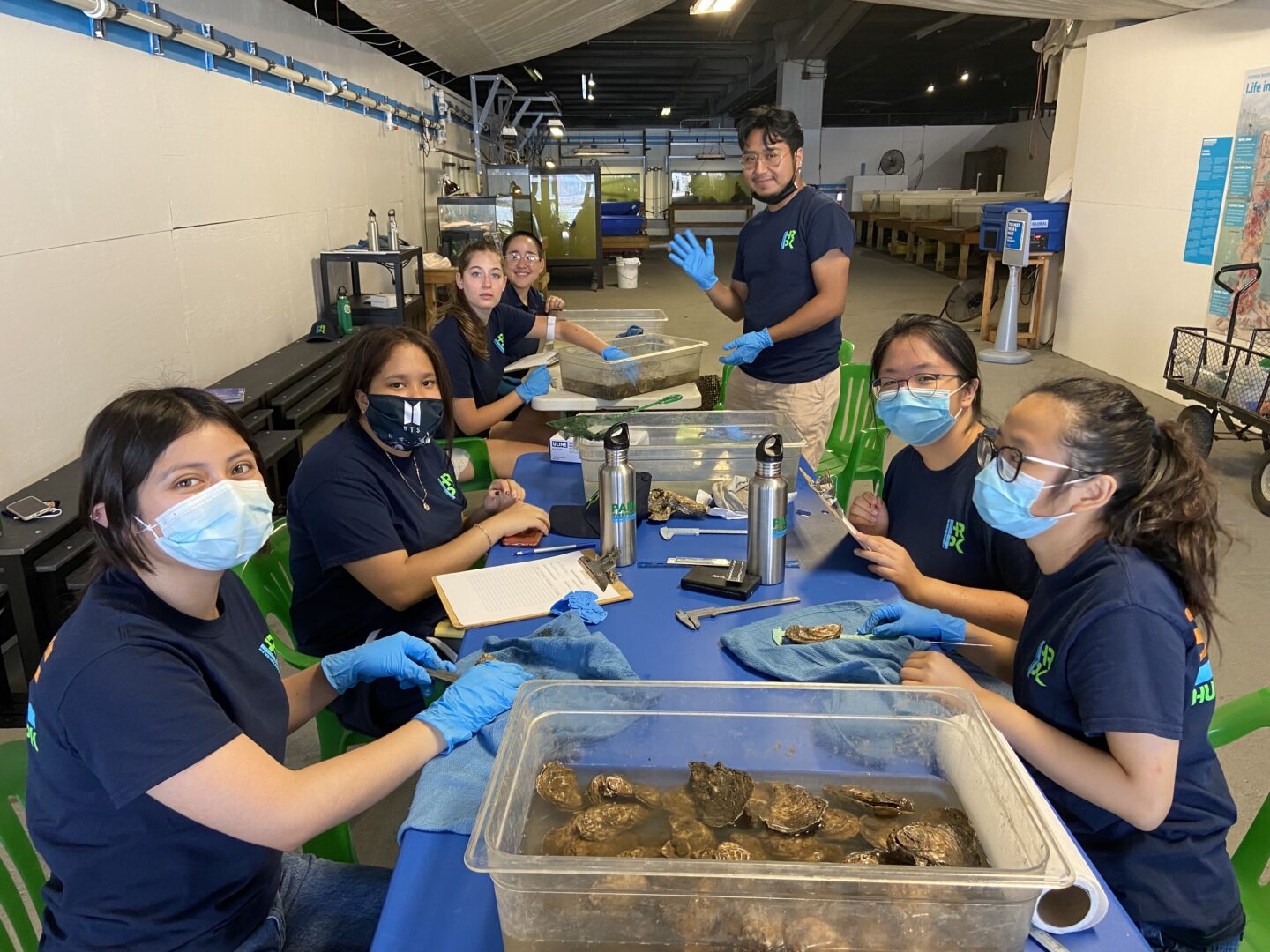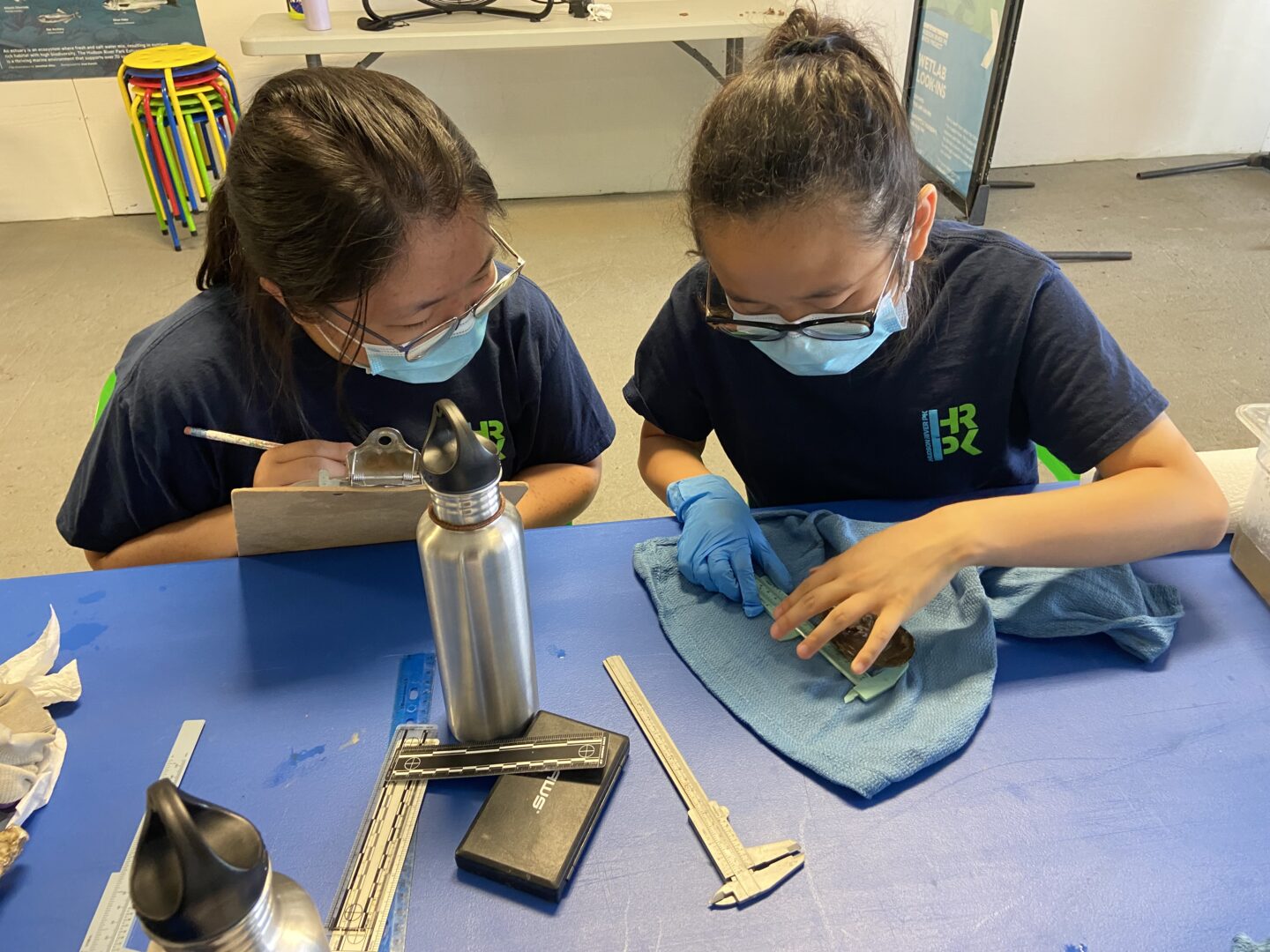Problem-solving, conflict management and collaboration are critical skills that support creativity and innovation in STEM. To achieve an environment where these skills can flourish, we need to create an inclusive STEM ecosystem that supports the authenticity and participation of diverse individuals. To do so, it is important to learn how to leverage one’s identities, including both personal and professional values and goals, in a STEM environment.
Cultivating STEM identity is a cornerstone in Hudson River Park’s Summer Research Internship program. Beyond providing hands-on research experience, this program provides mentorship and career stepping stones for students historically under-represented in STEM fields. This summer, we’ve been excited to welcome two college-aged mentors from CUNY City College and eight high school students to take part in a program focused on marine research and STEM leadership. As part of their personal growth during the program, we asked them to reflect on and share their responses to the question: “What does STEM identity mean to you?”
Read on below, to hear from each of our high school interns:
Amy: “STEM identity, to me, means who I am in terms of STEM and what role I play to contribute to this field. As a woman of color, this is doubly important to me because it means permeating a field that has been saturated with the same demographic for a long time. While I’m not exactly sure of what I want to do in the future, I know that I definitely want to go into STEM and change the world for the better.”
Denisse: “In five years I expect my STEM identity to expand from learning about just science to learning about all the fields in STEM….I see myself being in the technology field within STEM in the near future. My major is computer science so I am already taking the first step in accomplishing my goal. I’m excited for what the future brings and the new knowledge I will gain along the way.”
Florianny: “Ever since I was a little kid I have been asked the same question: “What do you want to be when you grow up?” The answer to that question has always been the same: “I want to be a doctor.” Now that I’m older I can appreciate the wonders science can make which have been incorporated into the medical field. As I grow I fall in love more with the idea of using science to serve people, which makes me think that in the future my identity will only grow to love science more and to be more knowledgeable of the STEM field.”
Hatoumata: “When I think of STEM identity I think of how you see yourself or how other people see you in the field… It is important to have a STEM identity when you want to work in the STEM field because it is the beginning of what you want to study and engage in. I think my STEM identity will grow in five years, with all the experiences [and opportunities] I am going to have.”

Marlene: “To me STEM Identity is how someone sees themselves in the STEM field and how much someone enjoys STEM. In the future I see myself working and studying within the STEM field. I plan on studying engineering and math in college… I see myself doing more in the STEM field.”
Juliette: “To me, STEM identity means feeling a sense of belonging within a STEM field/community. It is feeling drawn to and interested in the STEM world. Currently, I would like to pursue a career in math and science… I envision myself working in an environment-related field such as environmental engineering.”
Yesenia: “I think my STEM identity will grow a little more because every day we learn something new and we have to adapt to new technology and new sciences as we grow… I believe that every job/career has some STEM that makes it a part of it. It doesn’t matter if you’re a firefighter or a secretary or a cashier, STEM will always show up. I see myself as a lawyer or inside the criminal justice area. I feel like STEM has a lot of influence in this area because there is new advanced technology being discovered all the time.”
Zifei: “As a woman in STEM, it’s easy to get discouraged, especially when you’re typically the only girl in the room… But I remind myself that I have communities and resources to support me. STEM identity is acknowledging what you love about STEM and what you hope to achieve with your knowledge. My STEM identity is realizing the good that STEM can do for other people. It’s a way to constantly challenge us to find new and better solutions to our problems. I love how STEM can intersect with anything… I hope to use STEM to [engage] with social good and issues that I am passionate about such as sustainability, education, women’s rights and more.”
The conversation about identity in STEM continues Wednesday, August 11 at 12:00 PM. Join Hudson River Park’s River Project and the New York Academy of Sciences for the next installment of the “Ask a Scientist” series. We will be joined by a panel of diverse STEM experts who will talk about their professional evolution and how it complements their personal values. Panelists will share some of the opportunities available for students interested in exploring a STEM career and the importance for the STEM field to be a space where diverse identities thrive.
Register here.
